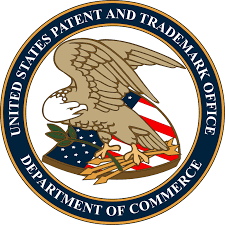How to Protect Yourself While Bringing Your Product to Market
In this article I’ll show you how to protect yourself from common scams, and from being ripped off in general, while bringing your product to market.

As an entrepreneur, startup, or inventor with big dreams you are ripe for being taken advantage of.
Unfortunately, there are lots of people and companies out there trying to take advantage of anyone with dreams of selling a successful product.
Some of these companies are completely dishonest scams, such as invention promotion firms. Others are not necessarily dishonest, instead their financial goals simply don’t align with yours.
To bring a new product to market you will need to work with engineers, designers, programmers, consultants, freelancers, attorneys, marketers, suppliers, and many others.
The more money you spend, the more these people or businesses benefit financially, so although they may not be scams their goal still may be to extract as much money from you as possible.
Do Your Market Research
So, you are considering developing a new product. What’s the first thing you should do?
Before doing anything else, you need to conduct market research to determine if its worth spending time and money on your product idea.
Often, entrepreneurs or inventors skip doing market research because they are overly confident that their product idea is great. It’s going to definitely sell like hot cakes, right?
Wrong! This is one of the biggest mistakes you can make. You absolutely must do market research ahead of time to know if you want to spend lots of money and time developing your product.
Even if you aren’t taken advantage of, you will waste your hard earned money by developing a product that can never be manufactured and sold for a profit. Market research will tell you this in the beginning so you can avoid unprofitable product ideas.
Dishonest Scams
Some of the biggest scams are conducted by companies providing “invention marketing” or “invention promotion” services.
Have you ever seen a late night commercial for InventHelp featuring George Foreman? This company and others will claim that they can do absolutely everything for you.
They may offer to show your product to interested companies, or to register your product in a databank that is viewed by thousands of companies. They may offer to “commercialize” your product
Some of their services sound legitimate, like patent referrals and the preparation of publicity releases and 3D animations of your invention.
No matter what your product is, they will tell you exactly what you want to hear – that your idea is novel and fantastic, with a high potential for profits!
They may even provide you a phony and highly inflated “feasibility score” claiming that your product is so unique and easy to manufacture that it will garner large profits!
All you have to do is send them money immediately, and they will make it all happen without any work on your part!
Sound too good to be true? It is. And you should avoid invention promotion/marketing companies at all costs!
For example, two aspiring inventors brought a $36 million class action lawsuit against InventHelp alleging fraud, false advertising and violation of consumer protection laws.
“[The inventors] claim they were strung along by a series of seemingly independent entities that were actually acting in concert, including promotion companies, a money lender, patent attorneys, licensing companies, manufacturers and distribution companies.”
Potential Warning Signs
In order to protect yourself, avoid any company or person that does any of the following:
Claims they can do everything for you
This includes obtaining a patent, developing your product, and marketing it.
A reputable company will never claim that they will do everything for you. If you’re looking for a way to make money that doesn’t require years of hard work, then you’re pursuing the wrong goal.
Tells you your product is a sure winner
Anyone who says this is lying. They don’t know that. No one knows that. By bringing my own product to market, I learned that no one’s individual opinion of a product really matters.
The only thing that matters is how the actual market responds to a product. Everyone you know can tell you that your product is great, but that doesn’t mean it will actually sell. The only way to know if a product will sell is to actually sell it.
Claims it will be easy to develop your product
There’s no such thing as “easy” when it comes to any type of business, but especially a hardware start-up. Never trust anyone who tells you hardware is easy.
Encourages you to make your product more complex
Product simplification is so absolutely critical in order for it to be feasible for most hardware startups to develop and manufacturer a new product. As Albert Einstein says always “make things as simple as possible, but no simpler”.
In most cases, always be cautious of anyone encouraging you to significantly increase your financial risk.
Tells you exactly what you want to hear
This is one of the most common strategies for invention promotion companies. They will tell you exactly what you want to hear – that your product is a fantastic idea, that it will sell millions and you are soon going to be rich.
All you have to do is start sending them money. Don’t do it, instead run away as fast as you can!
Promote your product or present it to companies
This claim is almost always a scam. If you want someone else to do all the work, while you sit back and collect royalty checks, then I suggest you stop the pursuit of getting your product to market.
You Need to Know Your Numbers
An important way to prevent being scammed or ripped off, is knowing your numbers. You need to have realistic estimates for developing and setting up manufacturing of your product.
Without realistic estimates for what everything will cost you are definitely opening yourself up to being taken advantage of.
For example, by having accurate estimates you’ll obviously know if someone is trying to overcharge you.
But, you’ll also know when someone is drastically undercharging you, which can also be an indicator of a scam.
You Are Not an Inventor
Inventor is a word so closely associated with scams that I recommend you ditch the label permanently. Look at yourself as an entrepreneur, not an inventor.
Labeling yourself an entrepreneur, and not an inventor, will greatly help you find investors, cofounders and customers. It will also reduce your chance of being scammed. Here’s why.
An inventor is focused just on the product they invent. Whereas an entrepreneur is focused on the big picture, which means making money by creating a successful company.
If you want to make money off of your product, then don’t label yourself an inventor or call your product an invention.
Referring to yourself as a “startup” implies that this is a real company, not a single inventor who may not follow through with running an actual business.
Don’t Start With a Patent
One of the first things that entrepreneurs focus on is getting a patent for their product. Patents are going to protect your product idea, right?
In most cases I advise against this strategy.
Before you start spending a lot of money and time on your product, you need to make sure it is a worthwhile product. Don’t make a patent your first priority.
Your first priority is getting market proof and data to show that your product can actually be developed and manufactured at an affordable cost.
Until you do this upfront work, you should refrain from spending the $10,000 plus dollars on getting a patent. Keep in mind that 97 % of all patents never make it to market.
Many beginning entrepreneurs focus on getting a patent instead of studying what the market actually wants. Make gathering market research to prove people want to buy your product your first priority.
Also, don’t fall into the trap of fearing that someone will steal your idea without a patent. Remember, an idea alone has no value. The value is in the execution of that idea. Until then, no one is going to steal your idea.
Instead of a full patent, I advise that you start with what in the US is called a provisional patent application. A provisional patent application gives you one year of protection for your idea. They only cost a few hundred dollars, versus $10,000 plus for a full utility patent.
A provisional patent gives you a full year to do the research required to determine if your product is worth pursuing.
Use this time to determine if your product can be realistically manufactured and sold at a profit.
Milestones
Having defined milestones will prevent you from paying more than what you were initially told.
When hiring engineers and freelancers, if possible, try to get fixed pricing, for clearly defined milestones, instead of hourly pricing.
This will lower your chances of a project exceeding your budget. See if you can negotiate to pay based on a freelancer’s ability to meet agreed upon milestones.
Typically, with hourly estimates, things always take longer than expected. So your costs can go up. As much as possible obtain fixed prices for any services.
Unfortunately, it will be hard to get fixed pricing for everything. In most cases, you can only get fixed pricing for well-defined steps, for example designing a schematic circuit diagram.
Obviously, have written agreements along with each clearly defined deliverables and milestones. You want to have written agreements so everybody involved knows what’s supposed to be done and exactly how much everything is going to cost.
Get Independent Design Reviews
Conducting an engineering design review is one of the most important steps you can do to prevent yourself from being scammed or ripped off.
How can you tell if the work you paid for is accurate and functional if you don’t have technical or engineering experience?
There’s an easy solution. Have an independent engineer review any work that you pay for. They can help you evaluate things accurately. We offer independent design reviews here.
Design reviews will also save you money in general. A design review catches mistakes before you begin prototyping. This will save you time and money, since you won’t have to produce as many prototypes.
I had a client a few years ago who was scammed by a design firm they hired in China. They paid the firm thousands of dollars to develop a custom printed circuit board for their product.
They were excited to finally receive the circuit board, but they quickly learned that the board in their hands was not a custom board.
They found the exact same board for sale on the Chinese manufacturing website Alibaba. They realized their developer had merely put a sticker of their logo onto an existing, off-the-shelf circuit board.
They were entirely ripped off and lost thousands of dollars. So how can you avoid this happening to you?
This unfortunate incident could have been prevented if another engineer had reviewed this firm’s work. Prevent this from happening to you by having an independent engineer review any work you have done by a firm, or engineer.
Also, present clearly defined milestones for your engineer or firm. When each of these milestones are reached, conduct an independent review. This way you can catch any problems or scams as early as possible.
Tips for Manufacturing in Asia
Shifting to manufacturing in Asia can feel overwhelming. Trying to find a manufacturer in a foreign country, especially when there are so many to choose from, is pretty overwhelming. It’s not a decision you want to take lightly.
When you are ready to transition to manufacturing in Asia, I recommend that you use someone called a sourcing agent.
Sourcing agents deal with China on a regular basis and have connections with certain manufacturers. They can help find manufacturers to source your components and manufacture your product.
Instead of dealing with dozens of suppliers or manufacturers in China, you will only have to deal with the one sourcing agent.
They focus on helping hardware startups set up manufacturing in China in a safe, low risk, and predictable fashion. Definitely check them out once you’re ready to migrate to full manufacturing in China.
Experienced Advisers
Another way to prevent yourself from being ripped off, scammed or making bad decisions in general, is to have a network of trusted advisers. Try to find at least one adviser that has business experience.
It’s always best if you can run things by advisers who have gone through similar situations before.
Of course, the best way to get advisors to help you is by joining the Hardware Academy.
Always Get Referrals
When possible, always get referrals for those that you hire. I know that’s not always possible, but in most cases it’s best.
This is one of the many reasons that you should always be working on expanding your network. Whether it be an engineer, a manufacturer, or an investor it’s always best to find people through a referral from someone you already trust.
Escrow Accounts
Another way to protect your money is to utilize escrow accounts. An escrow is simply an account that will pay your vendors through a third party company.
This protects your money by preventing it from being released until the project is verifiably completed.
You can hire freelancers on popular sites like Upwork.com. Built into the Upwork platform is an escrow service, so you don’t have to pay if a freelancer doesn’t deliver as promised.
Alibaba is a huge website for finding components, suppliers and manufacturers in China. When you make purchases through Alibaba, they will serve the role of a 3rd party escrow company. This protection is especially welcome when dealing with companies overseas.
If you don’t use an escrow account, at the very least use a credit card, not a debit card. Your credit card gives you at least some protection against fraudulent charges.
Most credit cards will allow you to dispute charges if you feel that a service or product you purchased is substandard or fraudulent.
Conclusion
Instead of worrying about someone stealing your product idea, you should worry about wasting your own money.
Don’t invest your time and money until you have proven that your idea can even be manufactured and sold for a profit.
Then, you need to worry about someone trying to steal your money. Invention promotion companies are masters at taking your money, and they couldn’t care less about your idea.
Always do your due diligence and watch every dollar that you spend. That’s going to be especially critical for a bootstrapped start up.
It’s important to remember that even if you have outside investors, there aren’t any shortcuts when it comes to getting a new product on the market. If you’re not willing to put in a lot of work over a long period of time, then I suggest you pursue a different goal.





Nice article again! It’s a pity that the word inventor attracts people that want to rip you off. I personally do like the word ‘inventor’, because it shows that you’re making new things to change people’s lives for the better. This is not necessarily the same for an ‘entrepreneur’.
Thank you Simone! I think the main issue with “inventor” is it implies a sole focus on the creation part of the process. You have to think more like an entrepreneur to make it a market success (although most “entrepreneurs” still focus way too much on the inventing part). Anyone that has been through all of this before knows that the inventing part is only a tiny percentage of what it takes to make a product succeed in a big way. Scammers know that those thinking of themselves as inventors want to focus on just the inventing so that makes them ripe for scams basically saying “we’ll do all of the other stuff you don’t like so you can get rich and still stay focused on inventing”.
Development (inventing) is both hard and really important. But marketing and sales are even harder and more important. The easiest and least valuable part of the whole process is the “idea”. Yet so many with an idea think it is priceless and so they are happy to throw lots of cash at making this idea have some value. But an idea has no value no matter how much cash you throw at it. The real value is on the execution of that idea.
You must be willing to execute on that idea yourself, or you are better spending your time and money elsewhere, unless of course you just enjoy the inventing process and have no plans to make money from it.
Thanks again for the comment!
After reading this article by John, I have to comment that his remarks are spot on. Currently, I’m doing a start up and I consider myself not an inventor, but a product innovator or designer. Being a member of the Hardware Academy is also very important for me. It is where I can soak up information and getting a discount on schematic and PCB reviews that have saved me $6000.
Hey Roger,
Thank you so much for this comment. I’m so happy to hear that the Hardware Academy and the design review I did helped save you $6,000!
P.S. Expect an email from me asking if I can quote you:)
Thanks again!